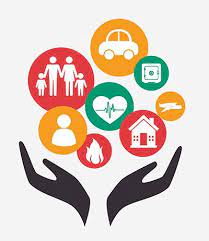May 10, 2022
The Community Health Corner
Submitted by Stephanie Gutierrez

Community health uses science-based approaches for the greatest health benefit to the greatest number of people by addressing the social, economic and structural drivers that impact health. The National Extension Framework for Health Equity and Well-being recommends health equity and community approaches to ensure that every person has the opportunity to "attain his or her full health potential," and no one is "disadvantaged from achieving this potential because of social position or other socially determined circumstances." The following tools and resources can be used to improve health equity and well-being working with communities.
PARTICIPATE NOW: Yesterday, the White House announced they would be convening a White House Conference on Hunger, Nutrition, and Health in September. Conference details and an opportunity to provide input are available at the above link. The goals for the conference are to “end hunger and increase healthy eating and physical activity by 2030, so that fewer Americans experience diet-related diseases like diabetes, obesity, and hypertension.” TFAH’s statement on the announcement is available here.
EXPLORE NOW: County Health Rankings & Roadmaps recently released the annual 2022 County Health Rankings, complete with new measures, evidence-informed strategies, and guidance on achieving a just recovery from the COVID-19 pandemic with economic security and health for all.
Find exciting new features on the website, including:
• The National Findings Report explores topics key to advancing a just recovery for economic security and health, including a living wage, equitable pay, childcare affordability and availability and equitable school funding.
• Seven new measures on income, education, family and social support, and health outcomes.
• A curated list of evidence-informed solutions to support a just recovery and close the racial wealth divide, including strategies around baby bonds, publicly funded pre-kindergarten and reparations for descendants of formerly enslaved people.
• The newly launched podcast, In Solidarity, which explores the connections between power, place, and health through interviews with some of the country's brightest minds and biggest thinkers. A six-episode series dives into the racial wealth divide’s connection to our health.
USE NOW: By the end of 2021, Americans found themselves in one of the worst nationwide mental health crises in years. Nearly 1 in 5 U.S. adults experience a mental illness each year, or more than 50 million people. Unfortunately, less than half of the people in need ever receive the mental health care they require. The infographic Prioritizing Mental Health Care In America highlights the many challenges contributing to America’s mental health crisis as well as steps to improve and strengthen mental health care and the behavioral health industry and promote individual resiliency.
For more information, contact Elaine Johannes, ejohanne@ksu.edu; and Stephanie Gutierrez, smgutier@k-state.edu.